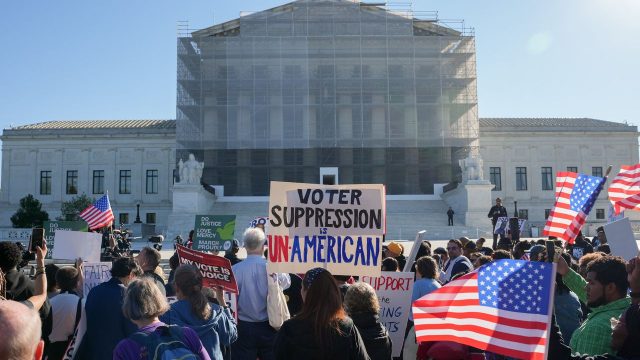
The Supreme Court appears poised to gut the 1965 Voting Rights Act, said Ed Kilgore in New York, and that ruling could shatter the partisan balance in the House for years to come. During oral arguments on Louisiana’s challenge to the seminal law, the court’s conservative justices seemed skeptical that it is still necessary for states to draw majority-minority congressional districts to “prevent the dilution of Black voting influence.” Without this provision in the law, Republican states could gerrymander their maps to eliminate mostly Black and Latino congressional districts. That could enable the GOP to gain 19 House seats and ensure its control of the body for the foreseeable future, according to voting rights advocacy groups. And if the justices rush to decide the momentous case by January, it will permit states to launch a “new round of redistricting actions” before the 2026 midterm filing deadlines. The court has done plenty of favors for President Trump, but enabling him to avoid facing a Democratic-controlled House would “top everything.”
If a majority rules against “racial gerrymanders,” said Jason L. Riley in The Wall Street Journal, it’ll be because times have “changed for the better” since 1965. Millions of Black Americans are now middle class, and Black voter turnout has risen dramatically. That’s the argument Justice Brett Kavanaugh, a key swing vote on the issue, made it clear he’s considering, said Jed Rubenfeld in The Free Press. He suggested that while majority-minority districts “might have been constitutional decades ago” because of overt racial discrimination, such fixes shouldn’t be indefinite. “What isn’t known is whether Kavanaugh thinks the time is already up or whether he’s firing a warning shot.”
Should the court “deliver a death blow” to the VRA, said Mark Joseph Stern in Slate, Democrats could prevent a long-term GOP stranglehold on the House—if they match Republican ruthlessness. “Out of good-faith compliance” with the VRA, blue states have also drawn majority-minority districts, which means they “produced more evenly divided districts elsewhere.” In a post-VRA world, those districts would be ripe for retaliatory gerrymanders. Moving “more Democratic voters out of deep-blue districts into red and purple districts” in New York, New Jersey, Illinois, and other states would eliminate “more than a dozen Republican seats.” The strategy would produce a “Congress with far fewer members of color.” But it’s a “brutal path to survival.”
A Supreme Court ruling against the Voting Rights Act could allow Republicans to redraw districts and solidify control of the House






